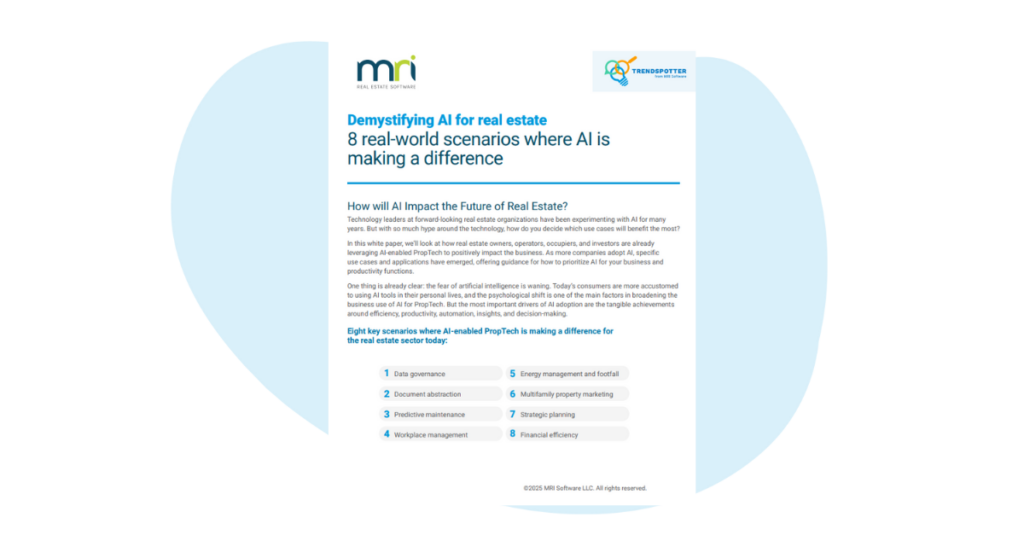Is your real estate data ready for AI? 11 Essential questions to ask
Real estate technology leaders are at the forefront of integrating innovative solutions to drive efficiency and value for the organization. One of the most transformative technologies at your disposal is artificial intelligence (AI). However, the success of AI projects hinges on a critical factor: the quality of your data.
Imagine building a house on a beach. As the tide washes in and out, the sand shifts in unpredictable directions, causing your house to move in surprising ways. No amount of reinforcement can build a foundation strong enough to withstand that level of change. The same principle applies to AI in real estate: without strong, accurate data, your AI models are built on shaky ground.
In this blog, we’ll explore why understanding your data is the critical first step in any AI journey.
What data do you have?
Before applying AI to any scenario, it is important to understand the data you have available. AI models look for patterns, and patterns require historical data. If you need a model to produce optimized lease pricing or to give early warning signs of asset failures, you need historical data. Understanding your available data and identifying any gaps is critical because it allows you to insert processes to fill those gaps.
Start understanding the data you have today by asking a few questions:
- What applications do we use today to support our real estate processes?
- What is the system of record for each type of data, and where do we go for the answer?
- Do we have data in legacy databases that were never migrated?
Will AI fix poor-quality data?
AI models are only as good as the data on which they rely. For real estate, this data includes lease agreements, occupancy information, maintenance records, financial statements, and much more. If the underlying data is incomplete or inaccurate, the AI-generated results won’t be useful, and even worse, the results could lead to incorrect conclusions and decisions.
When considering the quality and completeness of your data, try asking these questions:
- Do our teams trust this data, or are manual processes required to fix the data?
- Is the data in a standard format? Are there consistent naming conventions, date and value formats and categories?
- Is the data current, and how often is the data updated?
AI cannot fix bad data. It simply uses the data as is to generate models, which means inaccurate and incomplete data will create inaccurate results.
What if I don’t have a strong underlying dataset?
The more data the better! To create a more comprehensive dataset, consider supplementing with external data. AI models require a significant amount of data to understand patterns and trends. For example, if you are looking to predict likely asset failures, there are many factors to consider beyond the make and model of the asset. Weather is an important aspect, but weather data is likely not stored in one of your databases. You can supplement existing data by finding weather data online and importing it into your dataset for use in your model.
How can AI enhance data quality?
While AI can’t fix bad data, it can be used to ensure accuracy of new data and enhance data quality. For example, real estate teams have used document abstraction tools to cleanse their data and to onboard new leases and addendums, ensuring the data remains reliable and up to date. By automating lease abstraction and creating a centralized database, AI can enable accounting and property teams to quickly access trustworthy information. A software application is only as good as the data it holds, and AI can provide renewed confidence in your systems.
How can you build a foundation for AI success?
Understanding the data you have available, and its quality and completeness is the first step towards successful AI projects for your real estate business. Data is the foundation for AI models, and a strong foundation helps build long-term success.
Please join me for part two of this series to learn about real-world scenarios for AI in real estate.
Demystifying AI for real estate: 8 real-world scenarios where AI is making a difference
How will AI Impact the Future of Real Estate? Technology leaders at forward-looking real estate organizations have been experimenting with AI for many years. But with so much hype around the technology, how do you prioritize the use cases that will b…
